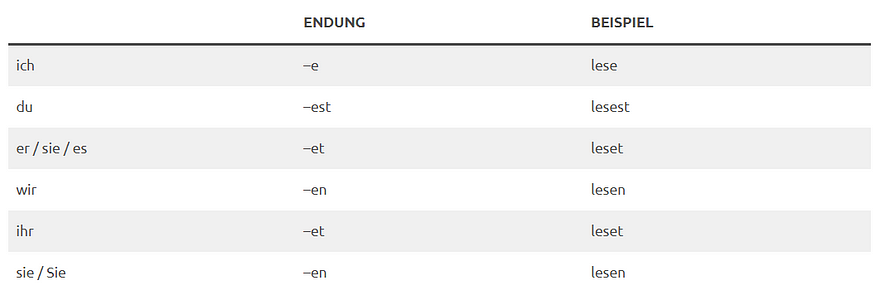
Indirect Speech in German (also known as reported speech or simply Indirekte Rede) is a way to report what someone else said or thought without directly quoting them. In German, there are 3 ways to make such sentences.
Direct Quote
To quote someone else’s words, you can simply give a direct quote, for example:
Matthias hat beim Bäcker einen Präzel gekauft.
Markus hat gesagt: “Matthias hat beim Bäcker einen Präzel gekauft.”
In this example, you need to put someone else’s utterance in quotation marks.
Nebensatz
To quote someone else’s words, you can also put someone else’s words in a subordiante clause, for example:
Matthias hat beim Bäcker einen Präzel gekauft.
Markus hat gesagt, dass Matthias beim Bäcker einen Präzel gekauft hat
Konjunktiv I
The third and most academic way of reporting speech is to use the Konjunktiv I. It is important to note that this type of reported speech is mainly used in press articles and very official documents; in everyday speech, the Germans would choose the two previous alternatives.
Indirekt Speech using Konjunktiv I Präsens
Konjunktiv 1 uses a very regular conjugation, i.e. the stem does not change, unlike in the present tense. To the infinitive without ending -en the following endings are added:

So for example:
Matthias kauft beim Bäcker einen Präzel.
Markus hat gesagt, Matthias kaufe beim Bäcker einen Präzel.
Indirekt Speech using Konjunktiv I Vergangenheit
That said, Konjunkitv 1 Vergangenheit is easier than Konjunkitv 1 Präsens, as there are only 2 auxiliary verbs to know, followed by a Partizip II. For example:

So for example:
Matthias hat beim Bäcker einen Präzel gekauft.
Markus hat gesagt, Matthias habe beim Bäcker einen Präzel gekauft
Silke ist nach München gezogen.
Hannah hat gesagt, Silke sei nach München gezogen.
Important note
What happens if the form of Konjunktiv 1 is the same as the form in the indicative? Then Konjunktiv II is used instead of Konjunktiv I. For example:
Die Studenten haben diesen Artikel schon gelesen.
Der Professor hat gesagt, die Studenten haben diesen Artikel schon gelesen.
Der Professor hat gesagt, die Studenten hätten diesen Artikel schon gelesen.